- Home
- About ANT
-
Products
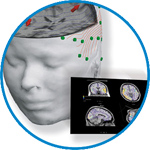
asa
asa is a highly flexible EEG/ERP and MEG analysis package with a variety of source reconstruction, signal analysis and MRI processing features.
.jpg)
eego mylab
The new frontier in multimodal brain research. With up to 16 kHz sampling rate, 256 EEG channels and unique software features, eego mylab gives you an unprecedented in-depth understanding of the human brain.
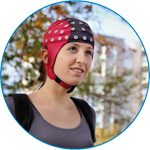
eego sports
eego sports offers complete freedom to collect high-density EEG data, bipolar EMG signals, and a variety of physiological sensor data, wherever and whenever required, with publish quality data in less than 15 minutes!
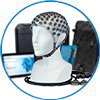
waveguard net
The waveguard net sets a new standard for research applications requiring high-density EEG data acquisition with quick preparation time, high flexibility, and subject comfort.
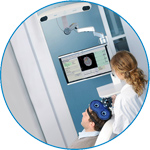
visor2
Our new and upgraded visor2 solutions integrate all the latest technologies for navigated rTMS, dual-coil navigation support, EEG-TMS recordings and pre-surgical evaluation for the highest quality in research and clinical procedures.

powerMAG ANT
The PowerMAG ANT 100 rTMS stimulator is designed for the specific needs of high-end TMS applications. Powerful high-frequency TMS as well as high precise single pulse and repetitive pulse protocols are combined in one single device.
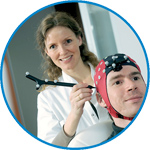
xensor
xensor offers the solution for digitization of 3D electrode positions. xensor takes care of the whole procedure; it records, visualizes and stores positions acquired with a dedicated digitizer.
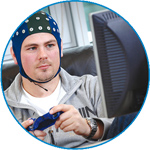
waveguard original
waveguard original is the cap solution for EEG measurements compatible with fMRI, MEG and TMS system. Use of active shielding guarantees performance in even the most demanding environments.
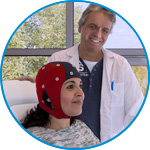
waveguard connect
waveguard connect EEG caps are a perfect match for hospitals and institutes aiming at reliable EEG, maximum uptime and great patient comfort! For optimal signal quality, the electrodes are made of pure, solid tin.
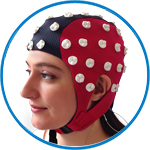
waveguard touch
waveguard touch is a dry electrode EEG cap. The unique Ag/AgCl coated soft polymer electrodes provide stable, research-grade EEG signals while maintaining subject comfort. The combination of these innovative dry electrodes and the industry-leading waveguard cap makes waveguard touch the best solution for dry EEG.
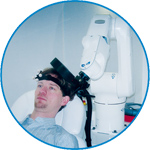
smartmove
smartmove allows planning of a complete TMS session ahead by defining stimulation sites based on anatomical MRI information and functional information like fMRI, PET or EEG/MEG.
Stay - References
- Support
- Events
- News
- Contact Us
You are here
Cortical and psychophysiological effects of sensory modulation on attentional switching during exercise
Cortical and psychophysiological effects of sensory modulation on attentional switching during exercise
The present research programme sought to further understanding of the neurophysiological mechanisms that underlie the effects of music on exercise. Five original experiments were conducted using a wide range of psychophysical, psychological, physiological, and psychophysiological techniques. The results of the first study indicated that music partially reallocates attention towards task-unrelated thoughts (i.e., external dissociation), suppresses the amplitude of low-frequency waves in the brain, and enhances task performance. The findings of the second study indicated that music can have a negative effect if delivered during the execution of highly-demanding cognitive-motor tasks. In such instances, the right parietal regions of the brain activate in response to the presence of auditory distractors and prevent task performance from being compromised. The third study shed new light on the neural control of working muscles and indicated that music has the potential to reduce the frequency of electrical outputs emitted to the musculature and reduce the communication between the central motor command and adjacent regions. The fourth study of this research programme was conducted in an ecologically valid environment, wherein participants walked at self-paced speeds in the presence of different auditory stimuli. The results of the fourth study indicated that music elicits more positive affective responses and up-regulates beta waves to a greater degree than no-music conditions. Finally, the fifth study of this thesis made use of functional magnetic resonance imaging to explore the brain regions that activate in response to exercise and music. The results of this final study revealed that the left inferior frontal gyrus is highly active when individuals execute part-body exercises with music. The present research programme provides a neurophysiological basis for the use of music in exercise settings. The findings presented herein support the use of music as a valuable tool to explore more complex psychophysiological phenomena such as attention, affect, and fatigue.

 Read more
Read more.jpg)




